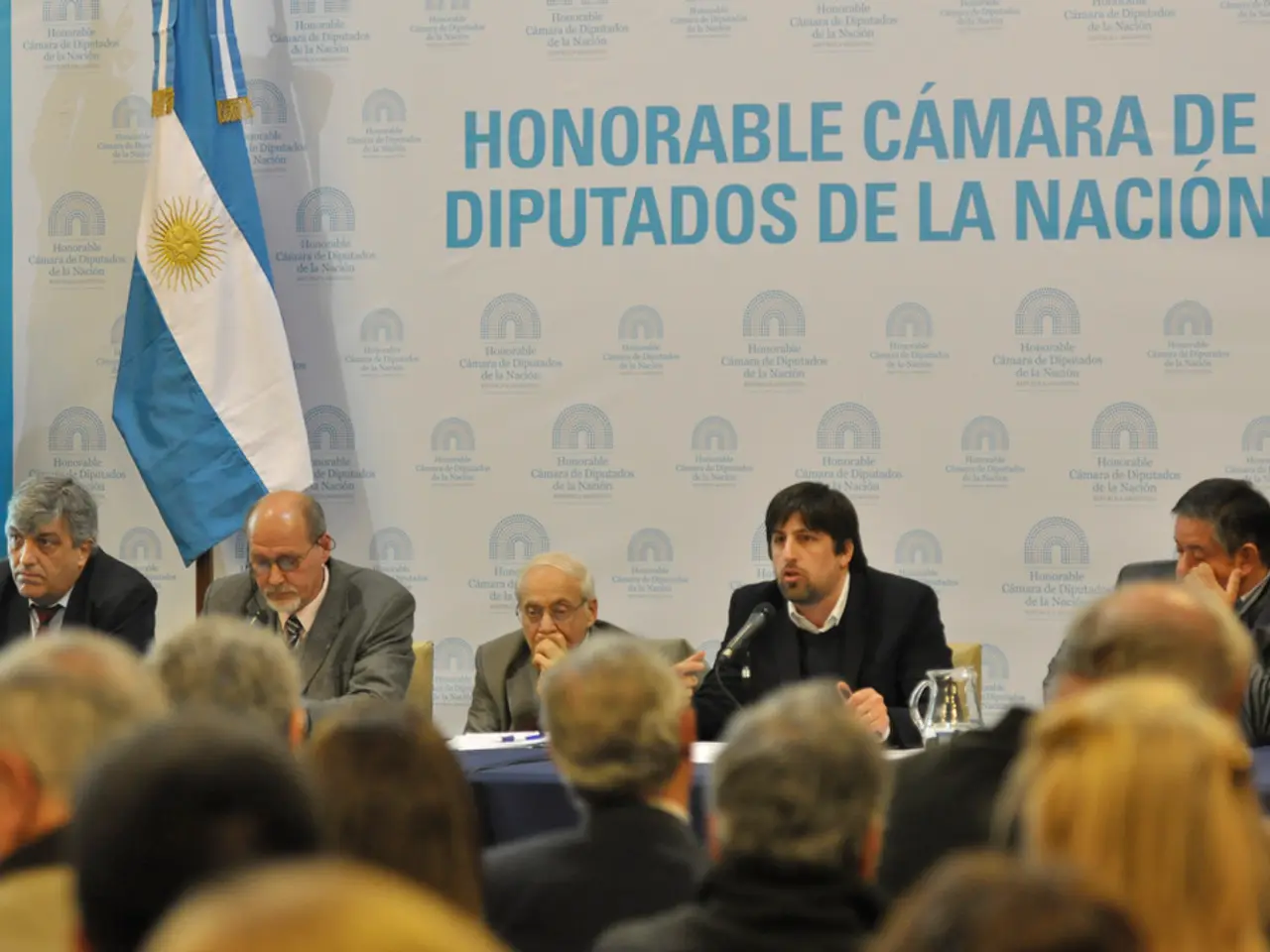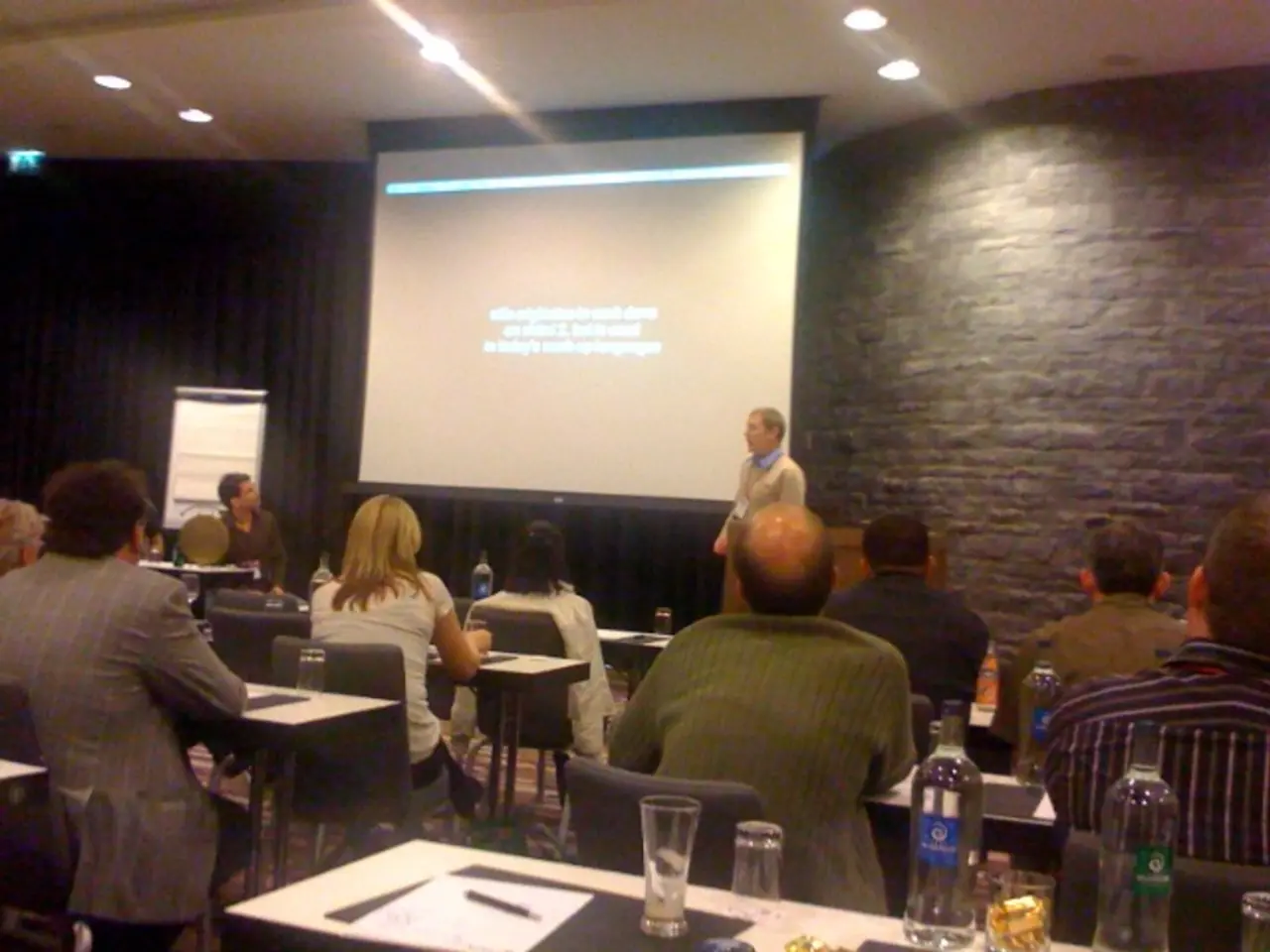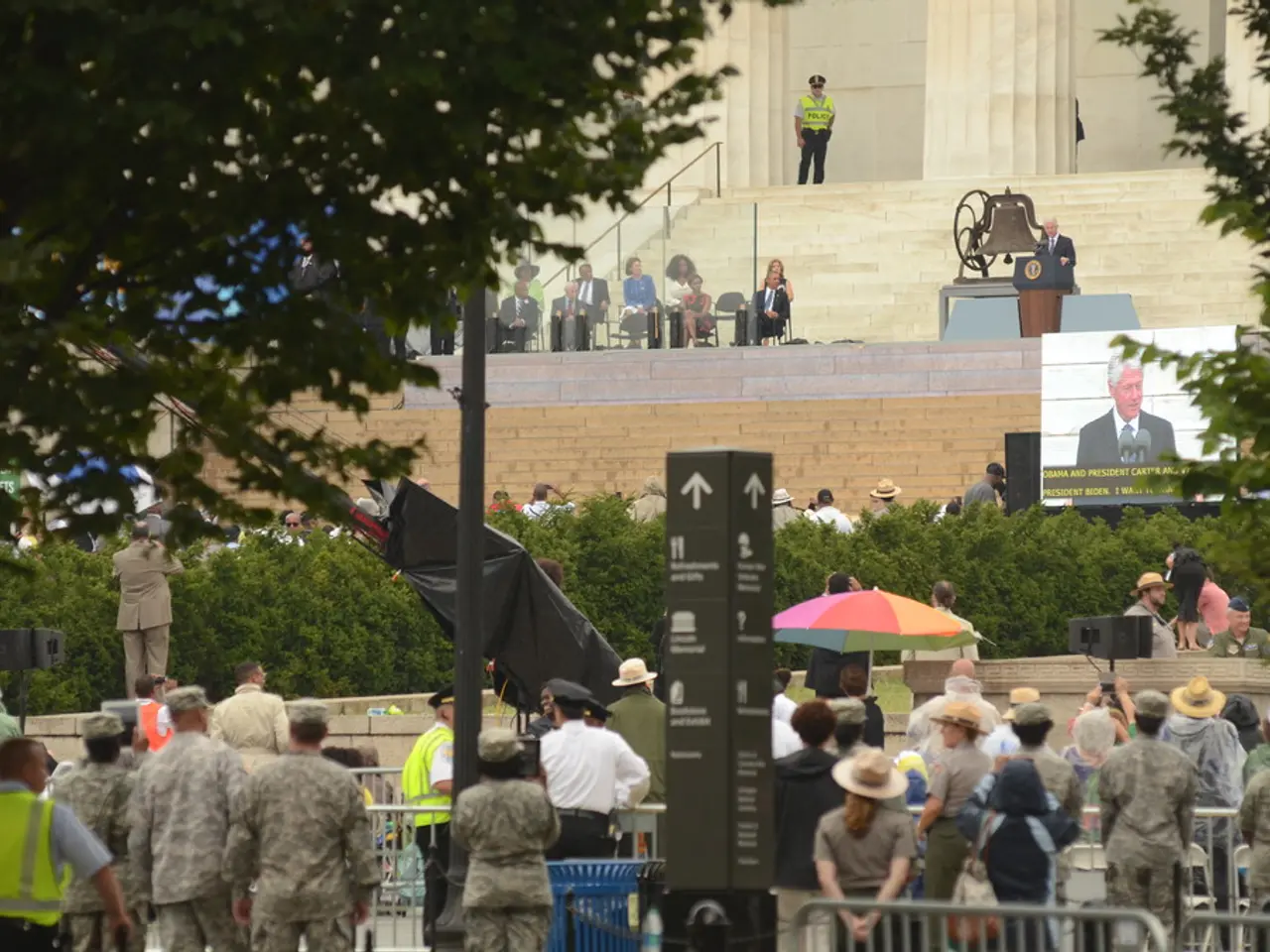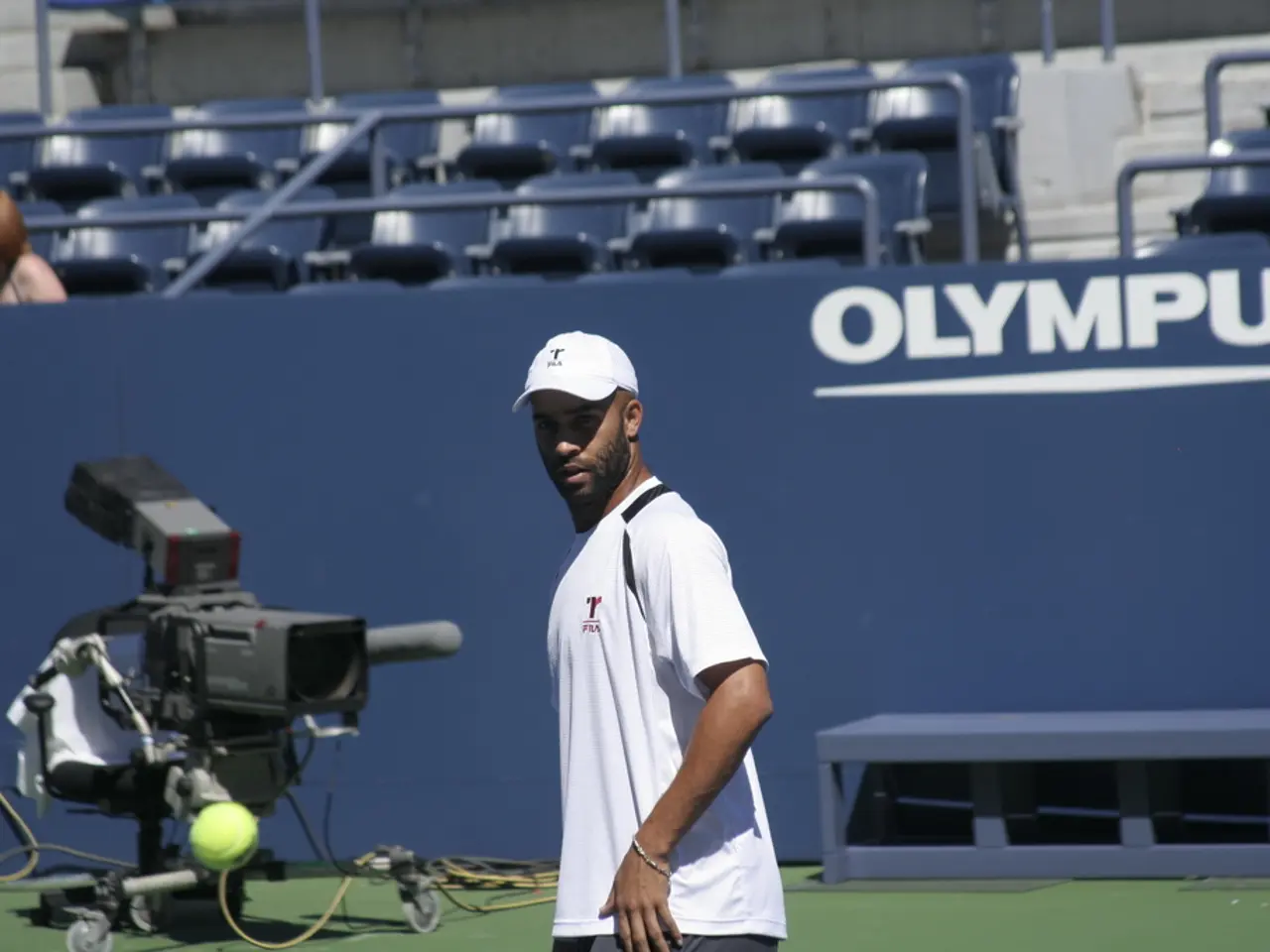Islamabad High Court Judges Take on Supreme Court Over Transfer Decision
Judicial officials question Supreme Court decision on alterations concerning judicial relocations
In a surprising development, five judges of Islamabad High Court (IHC) have lodged an intra-court appeal (ICA) against a recent Supreme Court decision that upheld the constitutional validity of transferring judges from other high courts.
The judges, Justice Mohsin Akhtar Kiyani, Tariq Mehmood Jahangiri, Babar Sattar, Sardar Ejaz Ishaq Khan, and Saman Riffat Imtiaz, have jointly submitted the appeal challenging the apex court's decision, which was announced back in June.
Justice Sardar Mohammad Sarfraz Dogar from the Lahore High Court (LHC), Justice Khadim Hussain Soomro from the Sindh High Court (SHC) and Justice Muhammad Asif from the Balochistan High Court (BHC) were transferred to the IHC in February. The judges moved the Supreme Court more than a week after the court dismissed their original petition filed against the transfer.
Earlier this year, a five-member bench, albeit with a 3-2 majority, dismissed their initial petition challenging the transfer of judges from three high courts to the IHC. In its June 19 judgement, the Justice Muhammad Ali Mazhar-led Constitutional Bench not only upheld the legality of the transfers but also allowed Justice Dogar to continue as the acting IHC chief justice.
However, the five judges in their petition have urged the Supreme Court to reconsider and overturn this judgement, claiming it should be set aside "in the interest of justice". In their plea, the judges have asked the court to grant interim relief as requested and to consider any further relief it deems appropriate.
Back in their original petition, the judges had argued that the President lacks the unbridled discretion to transfer judges from one high court to another without a manifest public interest. They also requested the court to declare that a judge's seniority should be based on the date they took oath as an IHC justice.
This intriguing legal dispute underscores the ongoing disagreement among judges regarding administrative processes within Pakistan's judiciary. Some IHC judges have also questioned new court practice and procedure rules connected to these transfers.
Interestingly, the Supreme Court had pointed out concerns over the unusual haste and procedural aspects of the transfers, noting differences from practices in other jurisdictions, such as India, where judge transfers do not require the judge's consent. However, in Pakistan, constitutional mandates require such consent.
As the legal battle ensues, it's crucial to observe how the Supreme Court responds to the ICA, potentially shaping the future of Pakistan's judiciary and its administrative procedures. Stay tuned for more updates.
Enrichment Data Added:
- Overall: The Islamabad High Court judges' intra-court appeal challenges the Supreme Court's affirmation of their transfers, marking an unusual judicial dispute over the internal administration and transfer procedures within Pakistan's judiciary. The Supreme Court has maintained its position on the transfers' constitutionality thus far. The controversy highlights constitutional concerns regarding judicial transfers and the level of due process and transparency in administrative decisions.
- This legal dispute in Pakistan's judiciary, initiated by five judges from the Islamabad High Court (IHC), has caught the attention of the world, as it involves a reevaluation of policy-and-legislation and politics surrounding the transfer of judges between high courts.
- The United States, keeping a close eye on global general-news, may find interest in this ongoing judicial dispute in Balochistan, as it sheds light on the administrative procedures and potential constitutional issues in Pakistan's judiciary.
- The PTI government, which oversees the country's policy-and-legislation, is likely to be heavily involved in this issue, as the future of Pakistan's judiciary and its internal administrative processes could be significantly impacted by the Supreme Court's decision on the IHC judges' intra-court appeal.








